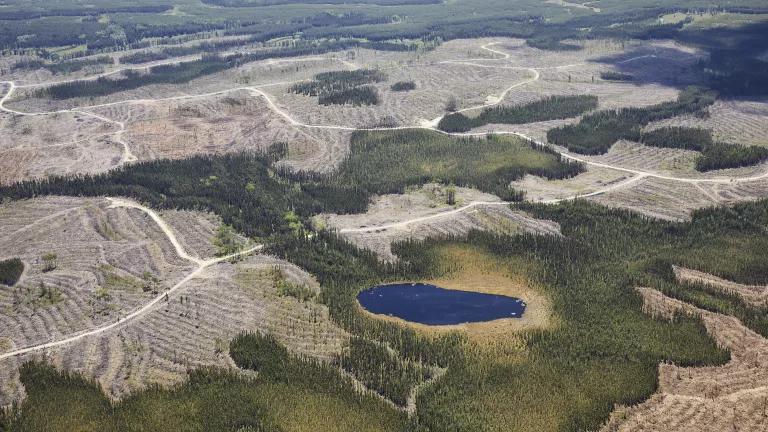
The State’s recent announcement of a proposed voluntary agreement (“VA” for short) for the Bay-Delta watershed is the result of an illegitimate, exclusionary backroom negotiation that fails to protect the health of the estuary, its native fish and wildlife, and the jobs and communities that depend on its health. Rather than the state using its longstanding authority to reform our inequitable water rights system and require water districts divert less water from our overtapped rivers, the proposed voluntary agreement seeks to reinforce the privileged, making state and federal taxpayers subsidize the obligations of the water districts whose unsustainable water diversions have devastated the estuary. What’s more, the proposal fails to ensure that minimum water quality objectives are actually implemented during droughts, and because it is built around the Trump Administration’s blatantly unlawful biological opinions for the Bay-Delta, it appears to increase water exports from the Delta and provides far less water for the environment than even the inadequate 2020 proposed voluntary agreement. I’ve described earlier versions of the voluntary agreements as smoke and mirrors. This latest version is nothing more than an empty deal for a deal’s sake that fails to solve the tough problems in the Bay-Delta.
To see the absurdity of this approach, can you imagine if the State of California proposed to eliminate existing air quality regulations that protect public health and instead exclusively negotiated voluntary agreements with industry over how much air pollution to allow in your community? Or can you imagine the State negotiating a backroom agreement with oil companies about how much oil drilling to allow offshore? Or if the State decided to negotiate climate change standards based on what oil companies and industry would voluntarily agree to, rather than setting regulations on greenhouse gas emissions based on what science dictates is needed?
California prides itself on its commitment to science and protecting the environment, yet when it comes to the Delta, the State’s leadership refuses to follow the science, and instead follows the money.
The VA Is the Result of an Inequitable and Exclusionary Process
Here’s who was invited into “the room where it happens.”
Notice anything about who’s in the room – and who’s not?
No Native American Tribes. No salmon fishermen. No conservation groups. No environmental justice advocates. No Delta communities. Despite the fact that Delta water policy affects all of us, these groups were systematically excluded from the process, as our allies explained in this letter to the Governor last year and in this op-ed by Chief Sisk of the Winnemem Wintu tribe and Barbara Barrigan-Parilla of Restore the Delta. What’s more, the State systematically refused to share documents with the public regarding these negotiations, claiming that nearly all of these documents were exempt from disclosure under California’s Public Records Act and requiring the privileged few that were invited into the backroom to sign confidentiality agreements to circumvent the public’s right to know.
The result of this systematic exclusion of other interests is that the proposed voluntary agreement is largely based on political science of how much water these districts will voluntarily give up (most of which is subsidized by taxpayers), rather than a flow proposal that is based on peer reviewed, publicly available scientific information about what flows are needed to restore this ecosystem. It’s therefore not surprising that the proposed voluntary agreement is a bait and switch that fails to protect the environment.
Where do we go from here?
Ironically, the VA is not actually a final binding agreement – it is more appropriately characterized as an agreement to continue negotiating (“The Parties reserve judgment whether they each will sign or otherwise support the Voluntary Agreements and do not at this time, commit to any actions described in the Term Sheet.”). It’s also clearly a political statement, putting pressure on state and federal agencies to circumvent regulatory and scientific processes that would require reduced water diversions from the Bay-Delta, and to try to get state and federal legislators to provide taxpayer funding for this inequitable and environmentally harmful “deal.”
Ultimately, any voluntary agreement will have to go through scientific review and a public process at the State Water Resources Control Board over the next several years before it could be implemented. After years of delaying the State Water Board’s regulatory process to update the Bay-Delta Water Quality Control Plan in order to negotiate voluntary agreements, hopefully now the Administration will let the Board do its job. And if there’s a credible review process based on biological science – rather than a review based on political science, controlled by the Resources Agency and the water districts that have a vested interest in diverting ever more water from the estuary – it will quickly become clear this VA is stuffed full of more manure than a cattle ranch in Hanford.
In my next blog, I’ll walk through how this proposal fails to provide far less water for the environment than what the agencies and experts have determined is needed to protect water quality in the Delta (including far less water than the 2020 Voluntary Agreement proposal), how this proposal fails to ensure that existing water quality objectives are met during droughts, and how this proposal assumes that much of the water and funding comes from taxpayers and other water users -- not the water districts signing the VA.



